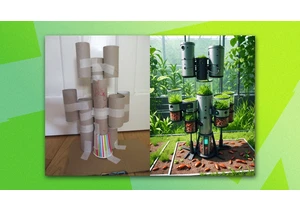Some of the staff at Elon Musk’s Neuralink are making preparations to sell the brain implant company’s stock in the wake of its valuation jumping following its first human trial, according to people familiar with the matter.
Stock compensation is a big incentive for employees at startups such as Neuralink. The shares they receive are not publicly traded, and employees that want to sell them without the company’s blessing have to use complex turnarounds on niche private market exchanges.
Now some of Neuralink’s employees and investors are preparing for Musk’s company to launch a tender offer as early as next month to buy back shares from staff that wish to sell, according to two sources briefed on the matter who requested anonymity because they were not authorized to speak publicly.
Neuralink and Musk did not respond to requests for comment.
The jump in Neuralink’s valuation following the launch of its first human trial in January is evident in secondary market trades. While these trades are thin in volume and do not provide a reliable number for Neuralink’s current valuation, they all point to a rise in value — some to as much as $8 billion, more than double what the company was worth last year.
Neuralink has called its first human trial a success. It said it remedied an initial problem of the implant’s threads retracting from its first patient’s brain and is preparing for more trials in Britain and Canada. Musk recently said the company plans to implant a second patient soon.
It could not be learned whether Neuralink has formally scheduled a tender offer or what its terms would be. Last fall, Neuralink launched a tender offer for employees that priced at around $19 per share, when some shares traded on the secondary market close to $35, according to a review of trades by Reuters and sources familiar with the matter. It is common for startups to launch tender offers at a discount to secondary market values.
Musk has for years created scarcity for shares in his startups, which also include rocket company SpaceX and artificial intelligence developer xAI, turning them into exclusive clubs that accept only a few investors, such as Peter Thiel’s Founders Fund.
This scarcity has made the shares sought after and investors content with receiving little information on how the startups have fared once they invested, according to investors and people who have worked closely with Musk. A spokeswoman for Founders Fund declined to comment.
The impact of this scarcity is reflected in recent trades. Buyers on private exchanges paid a premium of between 84% and 137% in the last few weeks to the $3.5 billion valuation Neuralink attained in its most recent private fundraising round last November, according to a Reuters analysis of trades recent trades and PitchBook data.
Most startups’ shares don’t trade at such premiums, and the majority of them trade at a discount. The median private company trades at a 32% discount from the valuation of its most recent fundraising, according to brokerage Forge Global.
Big windfall
Neuralink’s valuation has soared since it was started in 2016, and employees that were given shares at the launch or soon after at a fraction of their current value are in for a big windfall. Some buyers are offering as much as $50 a share, up from about $35 around when the human trial began in January, said Sim Desai, chief executive of Hiive, who said his secondary platform matches buyers and sellers interested in trading Neuralink shares.
SpaceX, Musk’s most valuable company besides electric car maker Tesla, also trades at a premium on the secondary market. One recent transaction at $130.11 valued the company at $232 billion, according to secondary trade data. The company valued itself at about $180 billion in a private fundraising round in April, according to Pitchbook. SpaceX did not respond to a comment request.
The sources said Neuralink asks its employees not to trade their shares on the secondary market, preferring they sell stock during tender offers that the company can control.
One reason, according to Hiive’s Desai, is that federal regulation prevents private companies from having more than 2,000 direct shareholders. Allowing limitless trading on the secondary market, especially for hot companies like Neuralink, could push a company up against the limit, Desai said. The other reason is companies retaining the ability to funnel access to investors they want at their chosen price.
“Basically, it’s an opportunity for a company, if they restrict the trades, to do their close friends and insiders a favor,” Desai said.
Due to restrictions on trading placed by Neuralink, Hiive only facilitates the matchmaking for shares, and the parties have to arrange for payment and the transfer of shares on their own, he said.
—Rachael Levy, Reuters
Inicia sesión para agregar comentarios
Otros mensajes en este grupo.

Stephen Miller, the hard-line Trump adviser who helped craft some of the administration’s most aggressive immigration enforcement policies, is apparently profiting from the tools that make them po

Robotaxis are crashing into the rideshare market.
Drivers for apps like Uber and Lyft are growing worried about autonomous vehicles. Waymo has already deployed their vehicles acros


Danish artist Andreas Refsgaard has been combining generative AI with handcrafted prototypes to create unique glimpses of what’s ahead—a future that could one day make artists like him obsolete.

Is it time to BeReal again?
In 2022, the photo-sharing app surged in popularity, won Apple’s “App of the Year,” and even earned its own SNL skit. Once a day, at a random time, users were

A bipartisan group of lawmakers on Wednesday vowed to keep Chinese artificial i

Who’s monitoring the situation right now?
As headlines continue to be dominated by news of missile attacks, retaliations, and calls for ceasefire, there are no shortage of situations to
